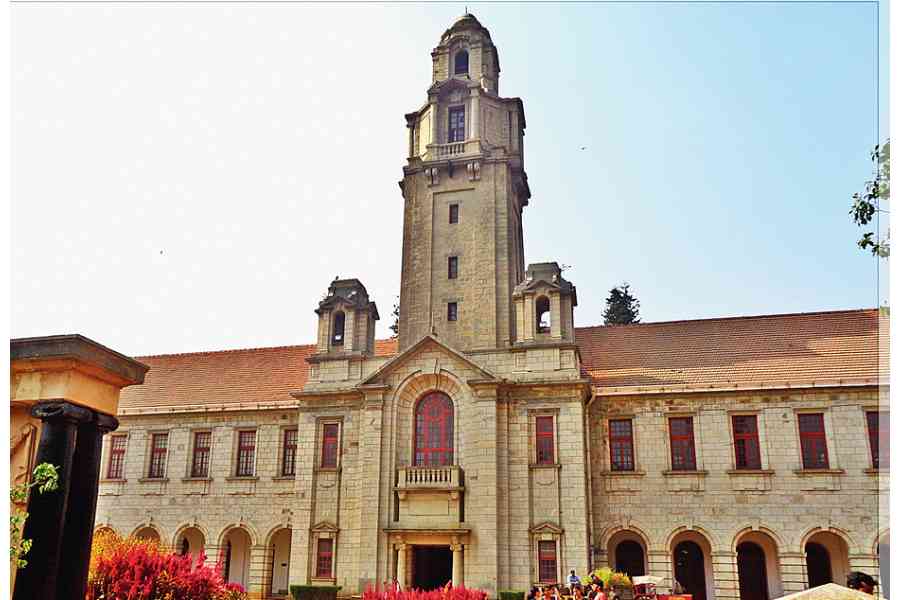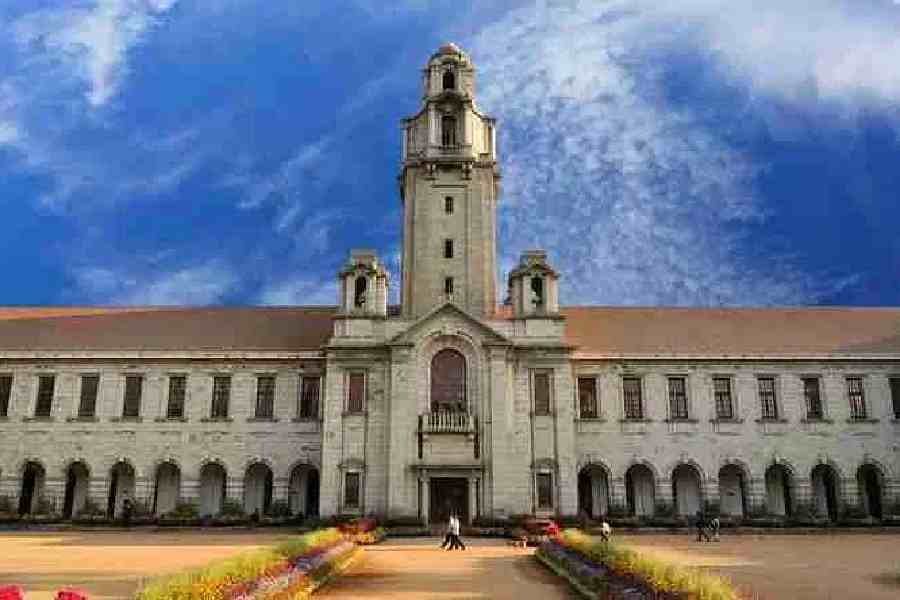Over 500 scientists and academics have asked the Indian Institute of Science, Bangalore, to ensure that its students and faculty remain free to express and discuss a range of ideas about science and society, after the institute stopped a discussion on the UAPA and the criminal-justice system.
Their letter is the latest expression of concern from sections of the academic community within the country about what some view as a campaign to suppress open public discussions and the right to raise questions about controversial issues.
The Centre-funded IISc had cancelled a planned discussion on the Unlawful Activities Prevention Act (UAPA), prisons and the criminal-justice system joined by Natasha Narwal and Devangana Kalita, student activists who had participated in the movement against the Citizenship Amendment Act in 2019 and had been imprisoned.
The discussion planned for June 28 at the IISc Centre for Continuing Education (CCE) had been approved by the CCE’s chair. But the IISc’s registrar on June 27 cancelled permission for the event and sent a security team to disperse an informal gathering that the student-organisers had arranged to replace the event. The security team backtracked only after the IISc faculty intervened.
Faculty from the IISc and other institutions have now expressed their dismay at the administration’s actions, saying they reflect poorly on its commitment to uphold academic freedom and democratic values and have damaged the IISc’s reputation within the country and abroad.
“Regardless of one’s perspective, such discussions are crucial in a functioning democracy and the IISc, as an academic institution, is ideally positioned to host them,” they said in a letter to the IISc director signed by more than 500 individuals.
“Conversely, if the institute is unwilling to permit peaceful discussions on constitutional questions, it is hard to see how it can foster a spirit of critical inquiry that is necessary for scientific work,” they said.
Narwal and Kalita were arrested under the UAPA after they joined campaigns against the CAA, the legislation passed by Parliament in 2019 that many view as discriminatory, divisive and breaching principles enshrined in the Constitution. They were accused of being part of a “larger conspiracy” in the 2020 Delhi riots case.
Delhi High Court had in its June 15, 2021, order granting them bail noted that “…in its anxiety to suppress dissent and in the morbid fear that matters may get out of hand, the State has blurred the line between the constitutionally guaranteed right to protest and terrorist activity. If such blurring gains traction, democracy would be in peril.”
The signatories to the letter have said they believe it was important for members of the IISc to hear about Narwal’s and Kalita’s experience and to reflect on the laws that were used to incarcerate them.
Faculty from the IISc, Indian Institutes of Technology in Bombay, Kanpur and Kharagpur, Indian Statistical Institute, Calcutta, Institutes of Science Education and Research, Calcutta, Pune and Mohali, Tata Institute of Fundamental Research, Mumbai, and the TIFR’s International Centre for Theoretical Sciences, Bangalore, are among the signatories.
“We hope you will take urgent corrective measures and ensure that members of the IISc remain free to express and discuss a range of ideas, both about science, and about the society that we live in,” they wrote in the letter.
Email queries from this newspaper to the IISc registrar and its director sent on Monday evening seeking their responses to the letter have not evoked a response yet.
An international group of political scientists from institutions in Germany and Sweden had earlier this year released a report saying freedom of academic and cultural expression and institutional autonomy had declined strongly in India since the Narendra Modi government came to power.
The report titled Academic Freedom Index Update-2023 had noted “a drop in university autonomy” in 2009 which, it said, was followed by a decline in “all aspects of academic freedom” after 2014.
In February, over 500 academics and scientists had decried the Centre’s efforts to block a BBC documentary on Prime Minister Modi and the Gujarat riots, asserting that the curbs violated Indians’ right to access and discuss important information about society and government.












